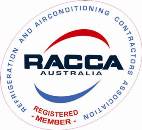Skills and training are important aspects in the Refrigeration and Air Conditioning industry, and they are also the fundamental part of any occupational licensing system. Operators and individuals need to be licensed to follow industry standards.
The ARCTick Scheme:
The ARCTick Scheme is the current national licensing scheme for fluorocarbon refrigerants administered by the Australian Refrigeration Council (ARC). There are also state or territory based licensing systems only covering work performed in that state.
In November 2017, the ARC revealed changes to the ARCTick Scheme that will be taking place from January 2018. The changes are the option to have a three year refrigerant handling licence and refrigerant trading authorisation (trainee refrigerant handling licences will default to one year in duration), and the availability of a renewal rather than a re-application process for those renewing their licences and authorisations 30 days or more prior to their expiry dates.
ARC Green Scheme Accreditation program:
In 2017, the ARC launched its Green Scheme Accreditation program, a voluntary program that provides a pathway for refrigeration and air conditioning technicians “to upskill and facilitates the use of new and emerging refrigerants and technologies into the industry.”
The program incorporates key refrigerants not covered by the current ARCTick Scheme, which include: hydrocarbons, carbon dioxide, ammonia and HFO1234yf. The program also provides a two-year accreditation for applicants who can provide the required competencies associated with a relevant ARC refrigerant handling licence, as well as additional competencies associated with the specific refrigerant. Successful applicants are issued with an accreditation e-card and logo, as well as access to the program’s app.
National Occupational Licensing Authority (NOLA):
In order to boost productivity and labour mobility across states and territories, allowing contractors to have a single licence that covers the entire country, the Council of Australian Governments (COAG) introduced National Occupational Licensing Authority (NOLA) to support the development of national licensing scheme for Australian occupations. A national licensing scheme for refrigeration and air conditioning practitioners is being examined by COAG through NOLA.
However, there are debates on whether contractors handling any refrigerant or working on refrigeration and air conditioning equipment should be required to hold a national licence, an ARCtick only or mutual recognition. Some operators don’t support the reforms of national licence, and some practitioners advocate a single agreed proposal for occupational licensing for the HVAC&R industry. A Regulatory impact statement was published and individual industry stakeholders made individual submissions on individual preferences to NOLA. The result is not available yet. However, the relationship between the national occupational licensing system and the ARCtick licence should be a matter for future consideration by NOLA, the ARC and COAG.
N.B. NOLA and the National Occupational Licensing System (NOLS) were disestablished in early 2014.
Disestablishment of NOLA and NOLS:
NSW Fair Trading Commissioner, Rod Stowe stated in a letter to RACCA President, Kevin O’Shea that as a consequence of the disestablishment of NOLA that “the task of improving labour mobility across borders has been assumed by States and Territories. The NSW Government remains committed to working with other jurisdictions, through the Council for the Australian Federation, to implement a system that will allow licensees to operate across borders without having to apply for a second licence or pay an additional fee. This will be of particular benefit to licence holders who live and work in areas bordering Victoria, Queensland and the ACT.”
Stowe also stated that “one option under consideration is an enhancement to the existing mutual recognition arrangements, which would operate in a similar way to the current driver’s licence framework. Essentially, State-issued licences would permit the bearer to undertake an equivalent scope of work in another jurisdiction.”
Proposed licensing reforms under the Queensland Building Plan:
In late 2016, the QLD Government released its Queensland Building Plan for discussion. Under the Queensland Building Plan there was a proposal for licensing reforms with the goal to “simplify licence classes and modernise the approach to licensing”. One of the many proposals was to establish a mechanical services licence, in which work (which includes refrigeration and air conditioning) under its scope would become regulated plumbing work.
RACCA Australia made a submission on the proposed licensing reforms under the Building Plan to the Queensland Department of Housing and Public Works. RACCA Australia stated that “any work completed on refrigeration and air conditioning single head split systems requires totally different competencies to those in the plumbing training package. The majority of contractors working in the Australian refrigeration and air conditioning industry supports and uses the Electrotechnology training package. If our industry doesn’t have its own occupational licensing scheme and is instead managed by other trades, such as plumbing, we will run the risk of becoming secondary constituents. Our industry will no longer be seen as their core business, it will be perceived as part of the plumbing industry.”
The general consensus in the industry is the need for national licensing, the strong opposition towards the mechanical services licence as the HVAC&R industry needs to stand on its own as a trade, and the fact that the required plumbing skills are inconsistent with those required in the HVAC&R industry.
The final report on the Queensland Building Plan, consultations and discussions is yet to be released.
Licence Recognition Website:
The Licence Recognition Website provides information about how an occupational licence or registration obtained in one state or territory can be recognised in another. Refrigeration and air conditioning mechanics state licence equivalents can be found on this website, which can be found here.
RACCA Australia National Licensing Coverage:
-NOLA to be disestablished from early 2014
-Ozone Options Review Paper submissions made public
-Report on WHS issues with SGGs in RAC industry available
-RACCA’s presentation at ATMOsphere Australia
-Census 2016 and the HVACR Industry
-FEATURE: Why Certificate II is past its use by date
-HVAC&R Nation publish article on industry skills gap
-CCN’s Industry Agenda for 2016
-RACCA Australia’s submission to the Queensland Building Plan
-Industry associations share thoughts on QLD licensing reforms
-AIRAH releases Safety in the HVAC&R Industry report
-Changes to RAC licence scheme in 2018
-ARC’s new accreditation scheme
-ARC’s Green Scheme Accreditation program
-FEATURE: ARC launches new Green Scheme app
More Information:
-Licensing submissions reveal an industry divided–Climate Control News
-NSW Fair Trading Air Conditioning & Refrigeration Licence Information



